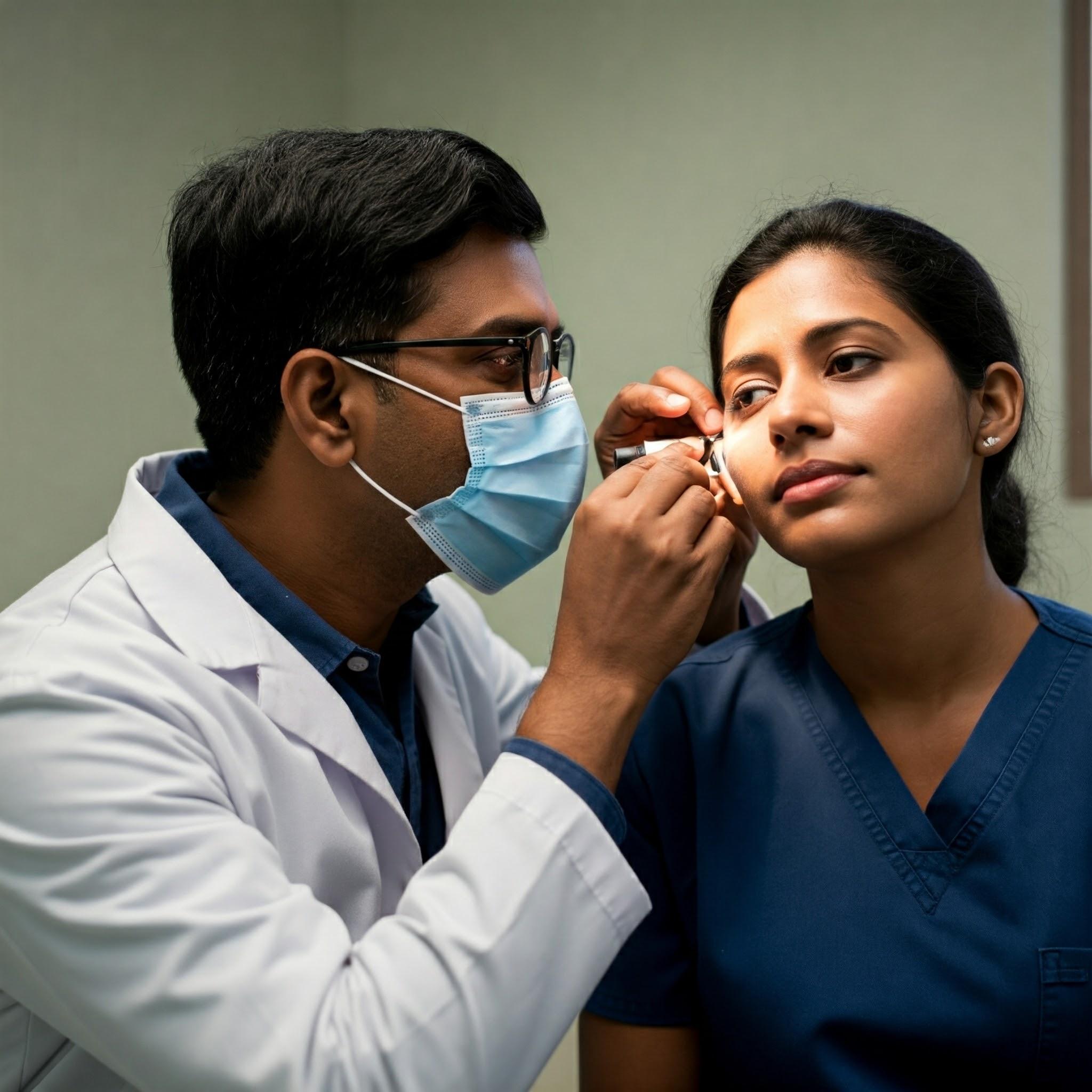Why You Should See an ENT Specialist: Expert Care for Ear, Nose & Throat Disorders

Introduction
An ENT specialist, also known as an otolaryngologist, is a medical expert trained in diagnosing and treating conditions related to the ear, nose, throat, as well as the head and neck region. These organs are not only vital to basic functions like hearing, breathing, speaking, and swallowing, but they are also closely linked, making the ENT specialty a crucial part of comprehensive healthcare.
From common ailments like sinus infections and tonsillitis to complex issues such as hearing loss and balance disorders, an ENT specialist plays a critical role in improving quality of life through targeted diagnosis and treatment.
What Does an ENT Specialist Do?
An ENT specialist manages a broad spectrum of ear, nose, and throat conditions in both adults and children. Key areas of expertise include::
- Ear Disorders: Hearing loss, ear infections, balance disorders, tinnitus (ringing in the ears), and congenital ear disorders.
- Nose Disorders: Sinusitis, nasal congestion, allergies, deviated septum, and sense of smell disorders.
- Throat Disorders: Sore throat, hoarseness, difficulty swallowing, tonsillitis, and voice issues.
- Head and Neck Conditions: Tumors, facial trauma, thyroid disorders, and sleep apnea.
ENT doctors use advanced tools such as endoscopy, audiometry, and imaging scans to assess and treat these issues effectively. They also perform surgeries like tonsillectomy, adenoidectomy, septoplasty, and sinus surgery.

When Should You Visit an ENT Specialist?
You should consult an ENT specialist if you experience persistent symptoms such as:
- Chronic ear pain, discharge, or hearing loss
- Recurring throat infections or hoarseness
- Frequent nosebleeds or nasal blockage
- Dizziness or balance problems
- Snoring or difficulty breathing during sleep
- Enlarged lymph nodes or growths in the neck
Early consultation helps avoid complications and allows timely treatment, especially in children, the elderly, and those with weakened immunity.
ENT Care at Modern Hospitals
ENT departments at leading hospitals like Behgal Hospital are equipped with the latest diagnostic and surgical tools. ENT specialists work closely with audiologists, speech therapists, and neurologists to provide holistic care. Treatment is not just about relieving symptoms—it also involves restoring normal function and improving the patient’s comfort and confidence.
Modern ENT care includes:
- Microscopic Ear Surgery: A precise surgical technique used to treat chronic ear infections and improve hearing function.
- Endoscopic Sinus Surgery: A minimally invasive procedure to relieve chronic sinusitis, ensuring faster recovery and minimal scarring.
- Voice therapy and laryngeal surgery for vocal cord issues
- Sleep Studies and Interventions: Diagnostic tests and treatments used to assess and manage snoring and sleep apnea for improved breathing and restful sleep.
- Head and Neck Cancer Screenings and Surgical Management: Early detection and advanced surgical treatment of tumors in the head and neck region to improve outcomes and preserve vital functions.
Pediatric ENT: Specialized Care for Children
Children often face ENT issues such as:
- Repeated ear infections
- Enlarged tonsils and adenoids
- Speech delays
- Congenital hearing loss
Pediatric ENT specialists offer gentle, age-appropriate care with early interventions that can significantly enhance speech, learning, and overall development. Surgical options like myringotomy (ear tube insertion) and tonsillectomy are commonly performed to relieve chronic conditions and prevent complications.
ENT Surgeries: Common Procedures
ENT specialists perform both minor and major surgeries depending on the diagnosis. Common procedures include:
- Tonsillectomy/Adenoidectomy: Surgical removal of the tonsils or adenoids to treat recurrent infections or breathing problems.
- Septoplasty: A procedure to straighten a deviated nasal septum, improving nasal airflow and breathing.
- Sinus Surgery: Endoscopic technique used to clear blocked sinuses and relieve chronic sinusitis.
- Cochlear Implants: Surgically implanted electronic devices that restore hearing in individuals with severe or profound hearing loss unresponsive to hearing aids.
These surgeries often use minimally invasive techniques, reducing hospital stays and promoting faster recovery.
Prevention and Long-Term Care
ENT health can be maintained with a few simple steps:
- Avoid loud noise exposure to protect hearing
- Manage allergies and sinus issues proactively
- Maintain vocal hygiene (especially for professionals using their voice)
- Seek treatment early for persistent symptoms
- Regular screenings for head and neck health
ENT specialists also provide education on self-care, lifestyle modifications, and follow-up plans, ensuring long-term relief and prevention of recurrence.
Conclusion
ENT specialists are essential for diagnosing and treating a wide range of conditions affecting the ear, nose, throat, and head and neck region. Their expertise not only resolves discomfort but also prevents serious complications that could impact speech, breathing, or hearing. Whether it's a recurring sinus infection or sudden hearing loss, timely care from an ENT doctor can make a significant difference in your well-being. With modern facilities and a patient-first approach, today's ENT care is more effective, safe, and accessible than ever before.







